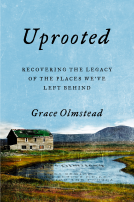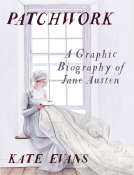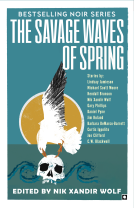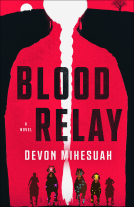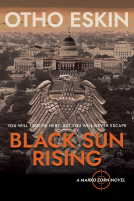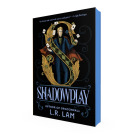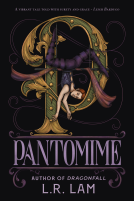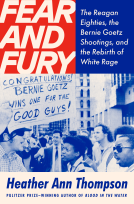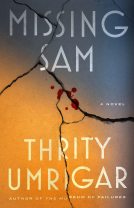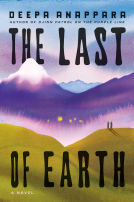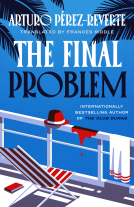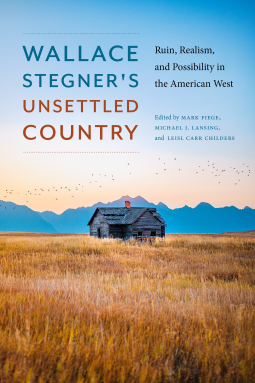
Wallace Stegner's Unsettled Country
Ruin, Realism, and Possibility in the American West
by Mark Fiege, Michael J. Lansing, and Leisl Carr Childers
This title was previously available on NetGalley and is now archived.
Send NetGalley books directly to your Kindle or Kindle app
1
To read on a Kindle or Kindle app, please add kindle@netgalley.com as an approved email address to receive files in your Amazon account. Click here for step-by-step instructions.
2
Also find your Kindle email address within your Amazon account, and enter it here.
Pub Date Feb 01 2024 | Archive Date Jan 31 2024
University of Nebraska Press | Bison Books
Talking about this book? Use #WallaceStegnersUnsettledCountry #NetGalley. More hashtag tips!
Description
Wallace Stegner is an iconic western writer. His works of fiction, including the Pulitzer Prize–winning Angle of Repose and Big Rock Candy Mountain, as well as his nonfiction books and essays introduced the beauty and character of the American West to thousands of readers. Wallace Stegner’s Unsettled Country assesses his life, work, and legacy in light of contemporary issues and crises. Along with Stegner’s achievements, the contributors show how his failures offer equally crucial ways to assess the past, present, and future of the region.
Drawing from history, literature, philosophy, law, geography, and park management, the contributors consider Stegner’s racial liberalism and regional vision, his gendered view of the world, his understandings of conservation and the environment, his personal experience of economic collapse and poverty, his yearning for community, and his abiding attachment to the West. Wallace Stegner’s Unsettled Country is an even-handed reclamation of Stegner’s enduring relevance to anyone concerned about the American West’s uncertain future.
Advance Praise
“Great writers present us with gifts as well as dilemmas. In this unflinching set of essays by scholars and practitioners of inclusive western history, Wallace Stegner is presented as bearing both. From various angles and social positions the contributors in this enlightening collection examine Stegner’s ideas, texts, political commitments, blind spots, and legacies, revealing not only Stegner’s mixed impact on American literature and culture, but also how his critical vision can spark hope in these troubled times.”—Tiya Miles, author of All That She Carried, the Journey of Ashley’s Sack, a Black Family Keepsake, Winner of the National Book Award
“Reappraisal is the perpetual destiny of artists and writers, so revisiting the life and messages of Wallace Stegner, the quintessential literary voice of the American West, is inevitable. In a collection that transports Stegner into the twenty-first century, the gifts the famed writer bequeathed us—beautiful expression, insights that can shade into horror, and yet hope for the future—are on display from every contributor. For all who treasure Stegner’s prose, his promotion of the art of writing, and his immersion in epic environmental battles, this smart, cutting-edge anthology may be the best book about him yet.”—Dan Flores, New York Times best-selling author of Coyote America and Wild New World
“Wallace Stegner was one of the greatest original minds America ever produced, and I think he’d be quietly happy to see his work expanded, challenged, and built on to great effect in this smart volume. It’s a very high tribute.”—Bill McKibben, author of Falter: Has the Human Game Begun to Play Itself Out?
“The contributors to Wallace Stegner’s Unsettled County revisit Stegner’s work in a critical and thoughtful way that reminds us of the brilliance of Stegner without glossing over his many faults as an observer of the American West. By drawing on inspiration from Stegner’s poignant observations, in these essays we find insight into what makes the American West such a complex and compelling region of study. As the authors remind us, only by dealing critically with our past as an unsettled region can we hope to make a better future.”—María E. Montoya, author of Translating Property: The Maxwell Land Grant and the Conflict over Land in the American West, 1840–1900
“To this day, Wallace Stegner continues to stand as the greatest writer on the modern American West. Wallace Stegner’s Unsettled Country captures his life and prominence beautifully. . . . As the authors ably show, his understanding of the past and vision for the future was based on his lifetime out on the ground in the arid West and his impeccable research into history, literature, and public policy. Stegner’s work was perhaps the most single important body of thought during the congressional action of the 1970s that is still the heart of modern conservation policy.”—Charles Wilkinson, author of Crossing the Next Meridian: Land, Water, and the Future of the West
Available Editions
| EDITION | Other Format |
| ISBN | 9781496236173 |
| PRICE | $29.95 (USD) |
| PAGES | 344 |
Available on NetGalley
Average rating from 4 members
Featured Reviews
<i>I really only want to say that we may love a place and still be dangerous to it. - Wallace Stegner, "Thoughts in a Dry Land"</i> (from the Prologue of <b>Wallace Stegner's Unsettled Country: Ruin, Realism, and Possibility in the American West</b>.
A discussion is initiated and presented within the pages of this book in the form of twelve essays about the many ideas and concepts contained within the writings of Wallace Stegner, and the extent to which he (and others who followed his lead - and who inspired him in his thinking) changed the way we think about "The American West"- that huge "empty" backyard of the Thirteen Colonies (also previously "empty") and how we saved all that from going to waste (jk).
We have as a people, fortunately, been experiencing a change of mind, a reconsideration of history, of our ancestors' motives, of all the many contributors of the mixed-bag legacy we are sorting through - it's a messy garage they've left us to sort through, and the stories they've told us are . . .not quite right. It's time to reconsider, revisit and be brave enough to revise some of these stories we are telling ourselves.
As for me - I'm a big fan of Wallace Stegner, with all his flaws. Just like I love Scarlett O'Hara. I just can't say GWTW is my favorite book anymore. Angle of Repose - another all time favorite. But it's clearly time to rethink and reposition - just like how you love your racist Granny. She's who she is, and to the extent you can change things, do. But, most of my racist Grand Folks are long gone, and the best I can do is sort through their stories, and place them in context, hear the words but never forget to listen hard to the spaces in-between, and the parts of stories they leave out - that's what you learn later or from other sources. Still important to pay attention to, though.
That is what this book does. It takes the works of Wallace Stegner (and the contemporaries he played with) and thoughtfully sorts through different aspects. Outting his White Guy leanings, his blindspots, while considering each carefully. Flags are raised in places I hadn't even considered, and advocacies and championing are recognized in other writings. (My TBR list grew appreciably from this read). The essays are well-researched, documentation shared, and are well-presented.
While it may be long-winded of me, I wanted to share the TOC so readers can see the variety of topics covered in the 12 essays (my own take-aways):
<i><b>Prologue: Wallace Stegner in His Time and in Ours</b>
<b>RUIN (Stegner's failings, flaws and blind spots)</b>
1 <u>Wallace Stegner’s Unsettled Country: Ruin, Realism, and Possibility in the American West</u>, Mark Fiege
[Lays the groundwork for the general premise. . . ]
2 <u>The American West as Exploited Space: From One Nation to Poston</u>, Alexandra Hernandez
[WWII use of park lands generally for Japanese Internment; specifically Poston in Arizona's Parker Valley]
3 <u>Creation as Erasure: Wallace Stegner and the Making and Unmaking of Regions</u>, Michael J. Lansing
[American settlements created over communities already established and existing by disappearing them]
4 <u>Exploits against the Effete: Wallace Stegner and Bernard DeVoto, Men of Western Letters</u>, Flannery Burke
[Outting the narrow concern of WS's writings - For instance - What's manlier according to WS&Co: Western writers v Eastern writers? - with notes that non-white, and non-men don't even register in the discussion!]
5 <u>Returning to the Best Idea We Ever Had</u>, Michael Childers
[National parks. . .all about the good and bad and whose they were to begin with. . . .]
<b>REALISM (Questions myths and tropes WS and his admirers perpetuated)</b>
6 <u>The Legacies of Wallace Stegner and the Stegner Fellowships in a Changing American West</u>, Nancy S. Cook
[WS writing and teaching changing the literary landscape of America, and his mind changing as he aged]
7 <u>Sludge in the Cup: Wallace Stegner’s Philosophical Legacy and the Hard Job Ahead</u>, Michael A. Brown
[WS's philosophical hopes he would leave with readers - did he miss the mark? Can you step in the same river twice. . .maybe. . .but did he?] A great discussion!
8 <u>Hope in Public Lands: A Conversation</u>, Leisl Carr Childers and Adam M. Sowards
[Public lands - discussed by two over years - "the geography of hope" (WS's phrase) and how it shows up in his works, advocacies and others influenced by him over the years]
<b>POSSIBILITY (Further areas of discussion/debate about what constitutes a usuable education in today's world and a reconsideration of WS themes of hope and bridging differences)</b>
9 <u>The Education of Wallace Stegner</u>, Melody Graulich
[Influence of learning institutions on WS, and further affect through his writings] "Culture is a pyramid to which each of us brings a stone." (WS from Living Dry)
10 <u>Revisiting "The Marks of Human Passage"</u>, Robert B. Keiter
[Dinosaurs and Bears Ears]
11 <u>The Geography of Hope in an Age of Uncertainty</u>, Paul Formisano
[Resources of the West (water, space, minerals) - ?should use or shouldn't? ?who controls?]
12 <u>The American West as Unlivable Space</u>, Robert M. Wilson
[Water, climate change, ecological challenges in the West - expansion too far hasn't worked - does WS have any answers?]
<b>Epilogue: Richer for this Sorrow</i></b>
<i>The Westerner is less a person than a continuing adaptation. The West is less a place than a process. - Wallace Stegner, <b>Thoughts in a Dry Land</b></i>
<i>There is a sense in which we are all each other's consequences. . . - Wallace Stegner, <b>All the Little Live Things</i></b>
Well-written, carefully presented in an even-handed way, this Wallace Stegner fan is pleased to have these new perspectives to think about. WS isn't my only favorite who has been shown as more storyteller, than truthteller and one needs to have tools to handle those kind of mind changing processes. This book provides some of those tools. It is certain that everyone should reconsider, revisit and readjust / realign / reject the "truths" and "histories" that have come down through the generations - because times, they are (and always have been) a-changin'. . . .
*A sincere thank you to Mark Fiege, Michael J. Lansing, and Leisl Carr Childers, University of Nebraska Press/Bison Books, and NetGalley for an ARC to read and independently review.* #WallaceStegnersUnsettledCountry #NetGalley
Readers who liked this book also liked:
Nik Xandir Wolf
General Fiction (Adult), Mystery & Thrillers, Novellas & Short Stories
Marie Bostwick
Historical Fiction, Literary Fiction, Women's Fiction
We Are Bookish
Mystery & Thrillers, OwnVoices, Teens & YA
Otho Eskin
General Fiction (Adult), Mystery & Thrillers, Politics & Current Affairs

